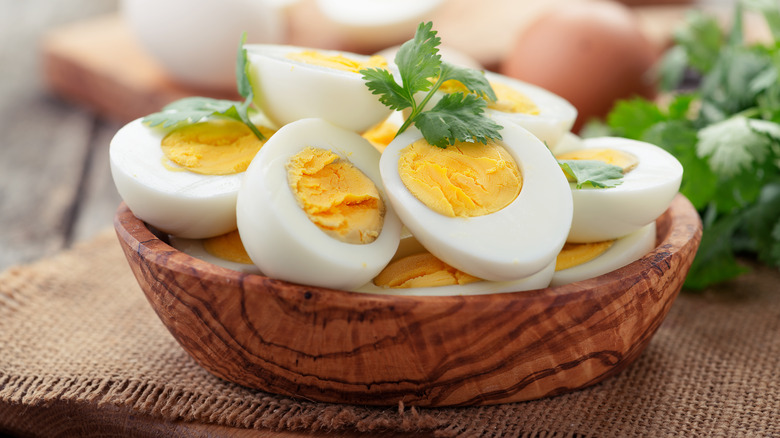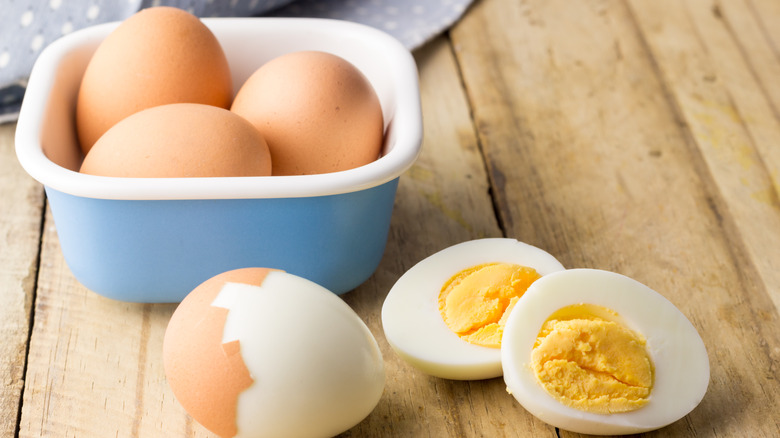Air Fryer Hard-Boiled Eggs Save You The Hassle Of Heating Water
Hard-boiled eggs can be a great snack when eaten on their own, and they are even more delicious when turned into deviled eggs or a creamy egg salad. While it's easy enough to make them the typical way (using the boiled-water method), there is another way to do it that requires even less effort: popping them into an air fryer. It takes even less time than cooking them in water because you don't have to wait around for the water to boil.
The process for air frying your eggs is simple: just lower them gently into the air fryer basket to ensure the shells don't break, then switch on the air fryer and let it work its magic. The cooking time will vary depending on how you prefer your eggs: hard, medium, or soft-boiled. And when you're done, you're left with perfectly cooked eggs and an air fryer that doesn't even need to be cleaned.
Use an air fryer for easy hard-boiled eggs
For the air fryer method, you'll want to keep the temperature relatively low. Preheat the air fryer to around 270 or 275 degrees Fahrenheit, which should lessen the risk of unevenly cooking or burning the eggs. Then, just let them cook for 15 minutes to transform them into a perfectly hard-boiled treat. You can adjust the cooking time if you prefer them to be less done than that. You'll need about 12 minutes for medium-boiled eggs, while soft-boiled eggs are done in 10 minutes.
The difference between the three types of eggs has to do with the firmness of the yolks. Hard-boiled eggs have a completely firm yolk, which is ideal for preparing deviled eggs or whipping up some egg salad with a bit of Greek yogurt. Medium-boiled eggs have a slightly gooey yolk, which makes for a tasty egg salad or is great on top of toast. And soft-boiled eggs have a much gooier center; they're the perfect addition to avocado toast. Remember that undercooked eggs carry a greater risk of foodborne illness, but it's still a relatively rare concern at about one in 20,000 eggs.
How to store hard-boiled eggs
A quick tip for when you pull your eggs from the fryer: Immediately immerse them in cold water. This will stop the cooking process, ensuring your eggs only cook to the doneness you prefer. If you've cooked your eggs and don't need to eat them all at once, they last a fairly long time when stored correctly. There is no need to peel the eggs before refrigerating them; the shell will offer a little more protection for the eggs, and they'll last about seven days.
If you are not peeling the shells, store the eggs in a sealed container. Since the shells are delicate, a hard plastic or glass container is best because it prevents them from cracking. However, if you are peeling them, the eggs should be stored in a bowl of cold water that covers the eggs entirely. This helps with freshness, but keep in mind that the eggs won't last as long as those with shells on; peeled eggs should be eaten within three days.


